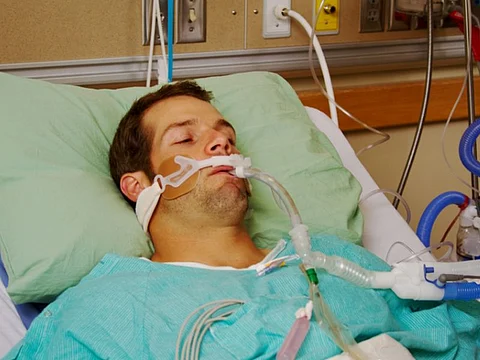FRIDAY, July 21, 2017 (HealthDay News) -- Functional magnetic resonance imaging (fMRI) and electroencephalography (EEG) may be able to detect consciousness in patients with severe traumatic brain injury who appear unconscious in the intensive care unit (ICU), according to a study published online July 20 in Brain.
The study included 16 severe brain injury patients in the ICU. The researchers concluded that fMRI and EEG may reveal a level of consciousness that can't be detected by the standard bedside neurological examination.
There are several reasons why the standard bedside exam may wrongly indicate that a patient is unconscious. The patient may be unable to speak, write, or move due to the brain injury itself or sedating medications, or the doctor may misinterpret a weak but intentional movement as a reflex response, the study authors noted. While previous studies used fMRI or EEG to detect consciousness in brain injury patients who have moved from hospitals to rehabilitation or nursing care facilities, this is the first such study to be conducted in ICU patients, according to the researchers.
"Early detection of consciousness and brain function in the intensive care unit could allow families to make more informed decisions about the care of loved ones," co-lead author Brian Edlow, M.D., of the Massachusetts General Hospital's Center for Neurotechnology and Neurorecovery in Boston, said in a hospital news release. "Also, since early recovery of consciousness is associated with better long-term outcomes, these tests could help patients gain access to rehabilitative care once they are discharged from an ICU."
Abstract/Full Text


